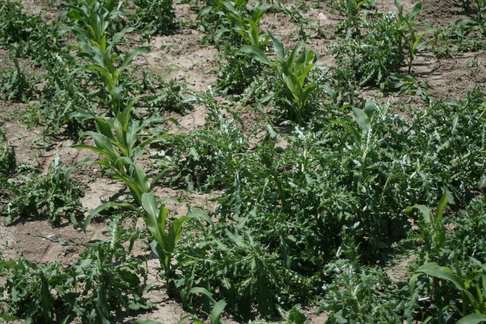Dr. Peter Sikkema explored the impact of weeds on corn and soybean yields
By Patrick Lynch, CCA-ON
Farms.com
Corn yield decreases as weed size increases at time of herbicide application, according to Dr. Peter Sikkema, professor of field crop weed management at the Ridgetown campus of the University of Guelph.
If you spray when weeds are at 10 cm height, you can lose eight bushels/acre (bu/ac). Other data showed that you can lose 19 bu/ac if weeds are allowed to grow until corn reaches the two-leaf stage.
This data highly suggests that you must control weeds as they emerge. To wait and spray once weeds are up means a loss in yield.
This information means you have to use a pre-emerge herbicide on corn. Then, if you do not get rain in seven days, you need to use tillage to kill weeds at the “white” stage.
“I think all corn producers should consider a two pass weed control program,” Sikkema said. Similarly, I argue that growers must use a two pass weed control system.

When Sikkema looked at soybeans, he found that if you did not control weeds until the unifoliate stage you could lose six bu/ac. His research said you should keep soybeans weed free up to the second trifoliate.
Sikkema also showed data that demonstrated there was no difference in corn yield between Integrity, Converge, Primextra and Lumax (Dual + Atrazine + Callisto). These results, however, were with the specific weed spectrum he had in his fields. There are differences in specific weed control among these herbicides.
Sikkema presented this research at the South West Ag Conference (SWAC), held Jan. 4 to 5 at the Ridgetown Campus of the University of Guelph.